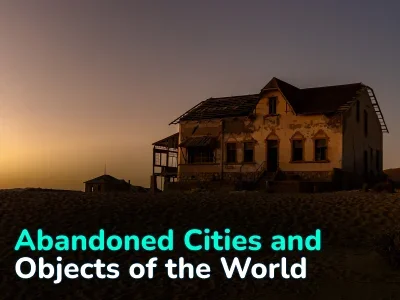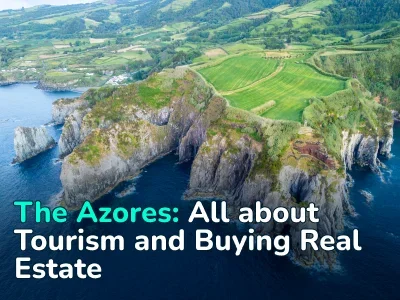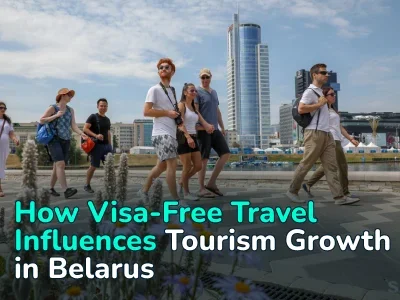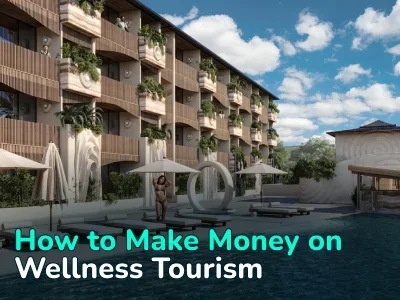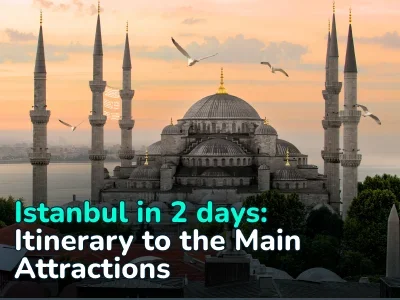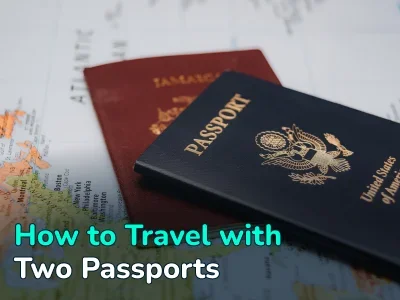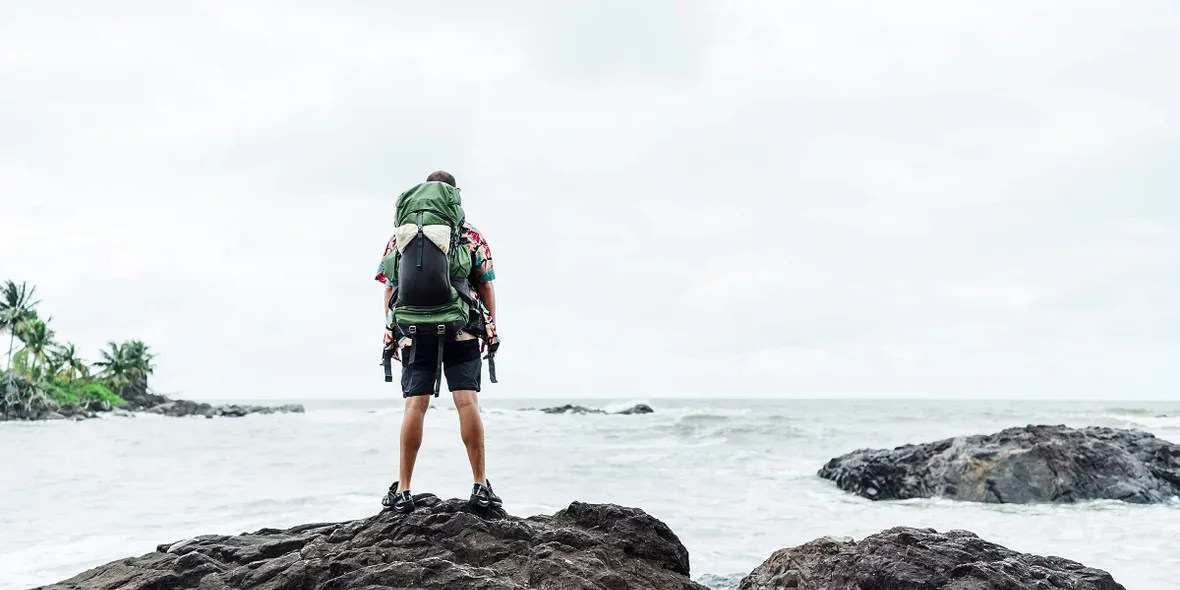
“You become free.” Three stories about the lifestyles of digital nomads: what they like about it, how much they spend, and how they organize their moves
How do digital nomads really live? Why do they choose to live this way? Do they need more money to live this way? Interesting stories of digital nomads are already waiting for you in our article.
Digital nomads, who work remotely and travel simultaneously, were previously unheard of, but now everyone is talking about them. Moreover, more and more countries are issuing special visas for digital nomads—a full list of such visas with details can be found in our big text.
Today, it’s time for stories—from those very digital nomads. We found three nomads with different experiences and asked them: how and why they chose the path of a digital nomad, what was their first experience of nomadism, what is the value of this lifestyle for them, what are the difficulties they face, and how do they manage to work at such a pace.
“Over the past 7 years, I have lived and traveled in 45+ different countries on four continents”
Ekaterina Konyukhova tells her story of nomadism:
— I was born in the city of Syktyvkar. After school, I went to study in St. Petersburg, where I lived until 2015. But I always wanted to go somewhere for a long time, like wintering in a warm country. At 19, when I was still a student, I was in India (Goa) for three weeks—I remember that experience very well and wanted something even more ambitious. However, I came to a truly nomadic way of life in a rather ornate way, and only after 6 years.
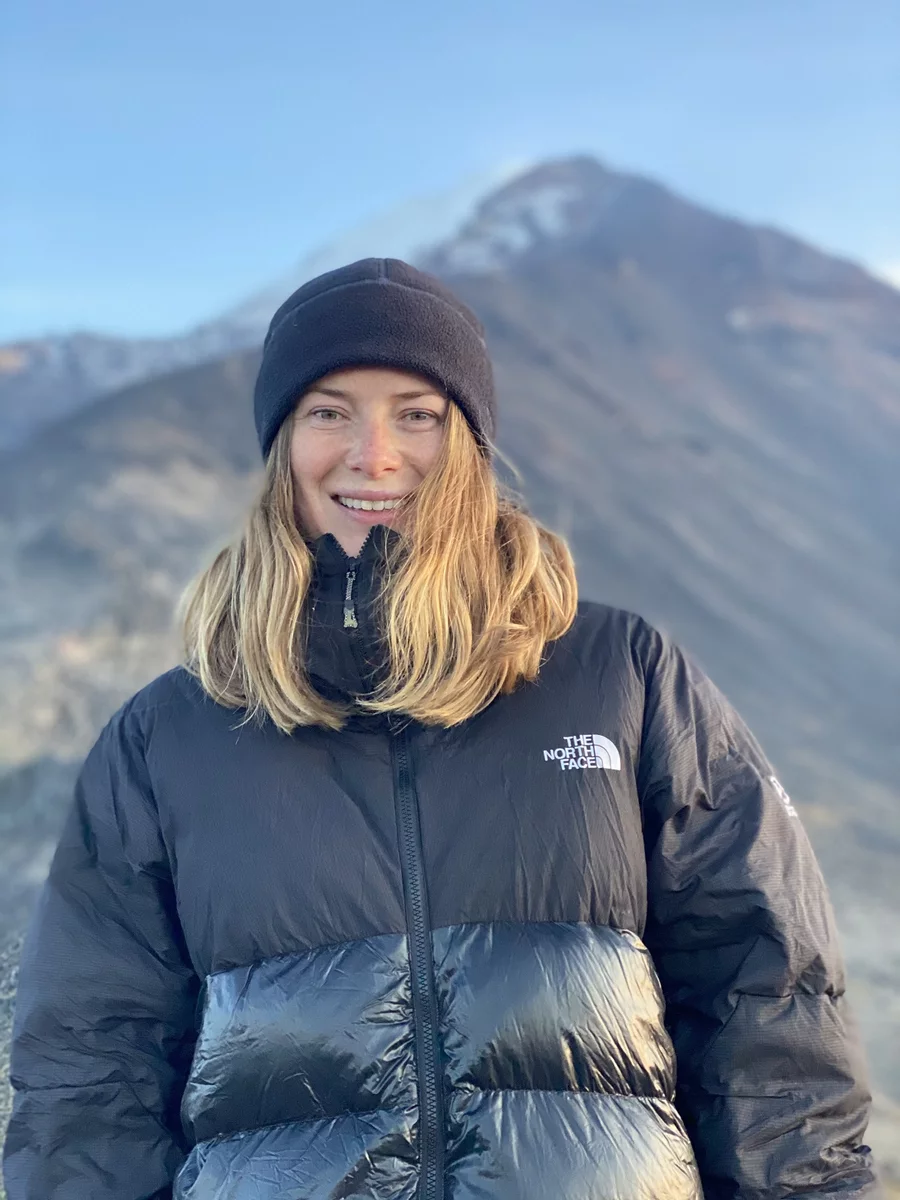
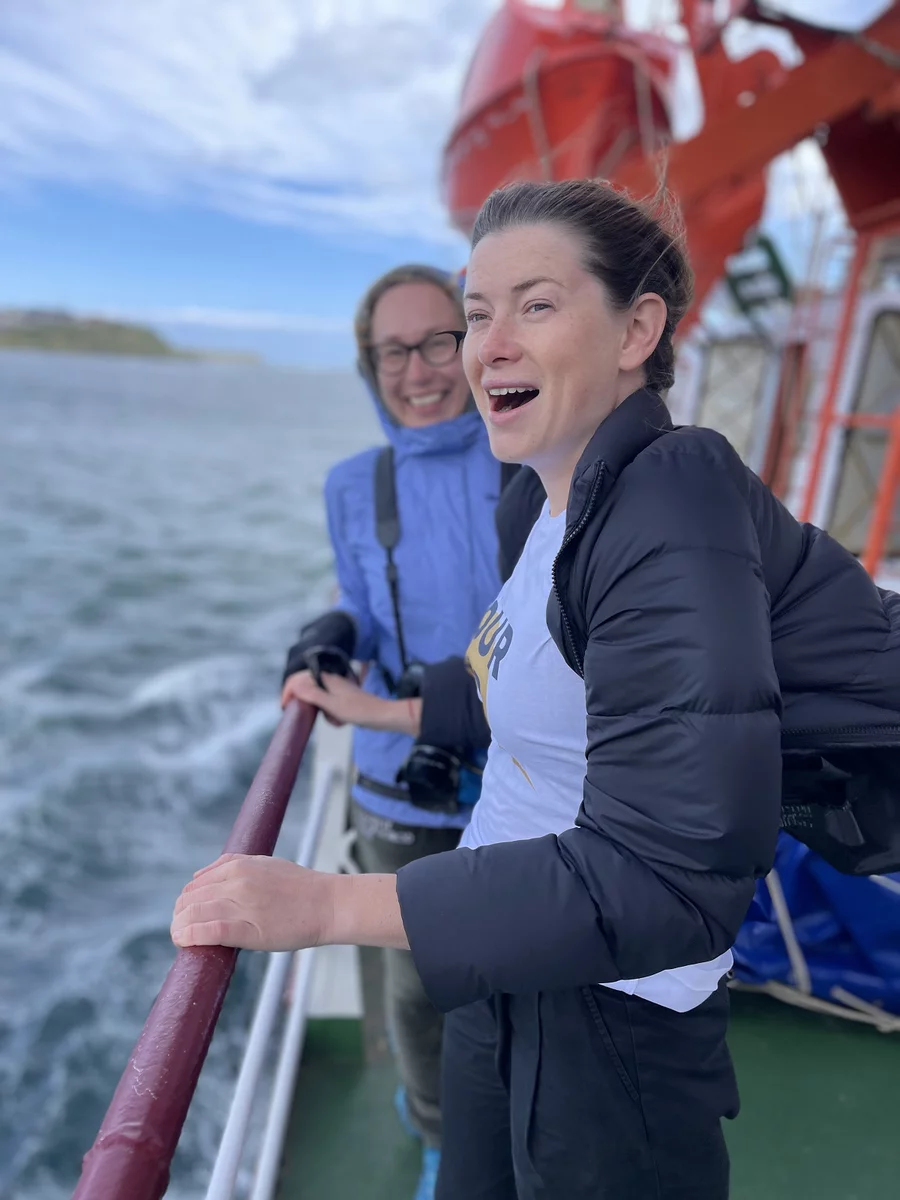
— In 2015, when I was 25, I made the hard decision to elope from my own wedding, and almost at the same time, a big project at work ended. It seemed like there was nothing keeping me in this city (St. Petersburg) anymore. I sold my car for 150,000 rubles (that’s about $2,000 at this point) and took tickets to Thailand for 3 months. I was on my way to figuring out what I was going to do with my life next.
I naively thought I had enough money for three months of life on Samui. But it ran out in the first three weeks. "I have to get a job," I thought. And the job found me completely by accident (although now I realize that nothing is accidental).
One day I came a little early to play an open board game with strangers. The organizer started asking me what I was doing on the island, what I used to do, etc. At the end, he told me that he owned a franchise company where all the employees worked remotely and that he was currently looking for a manager in the marketing department. He suggested I send my resume.
I was elated!
I sent in my resume, got the job done, and they gave me the job. The first month’s salary was $500. In three months, I became the director of marketing for a franchise company with 90 franchises in Russia and the CIS. I was already being paid $1,000 to $1,200, and I stayed in Thailand. My job was not tied to a place, and I could travel on a budget and live wherever I wanted.
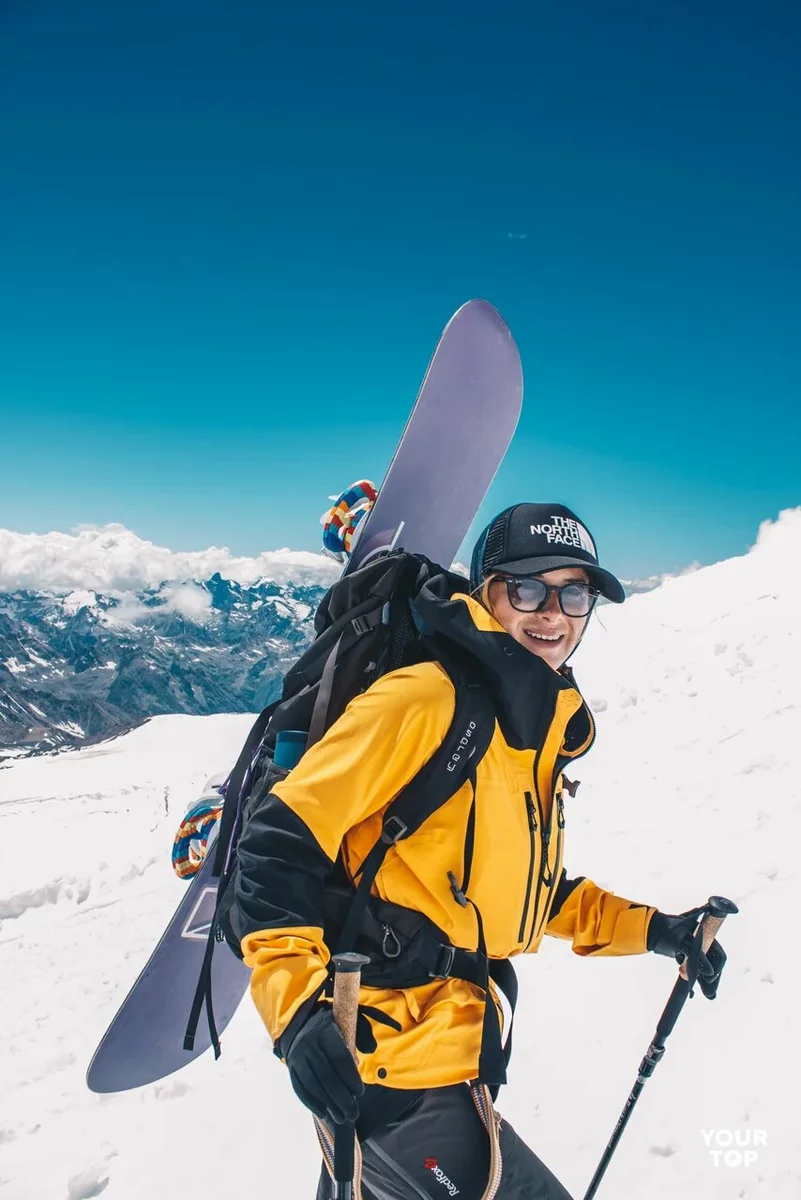
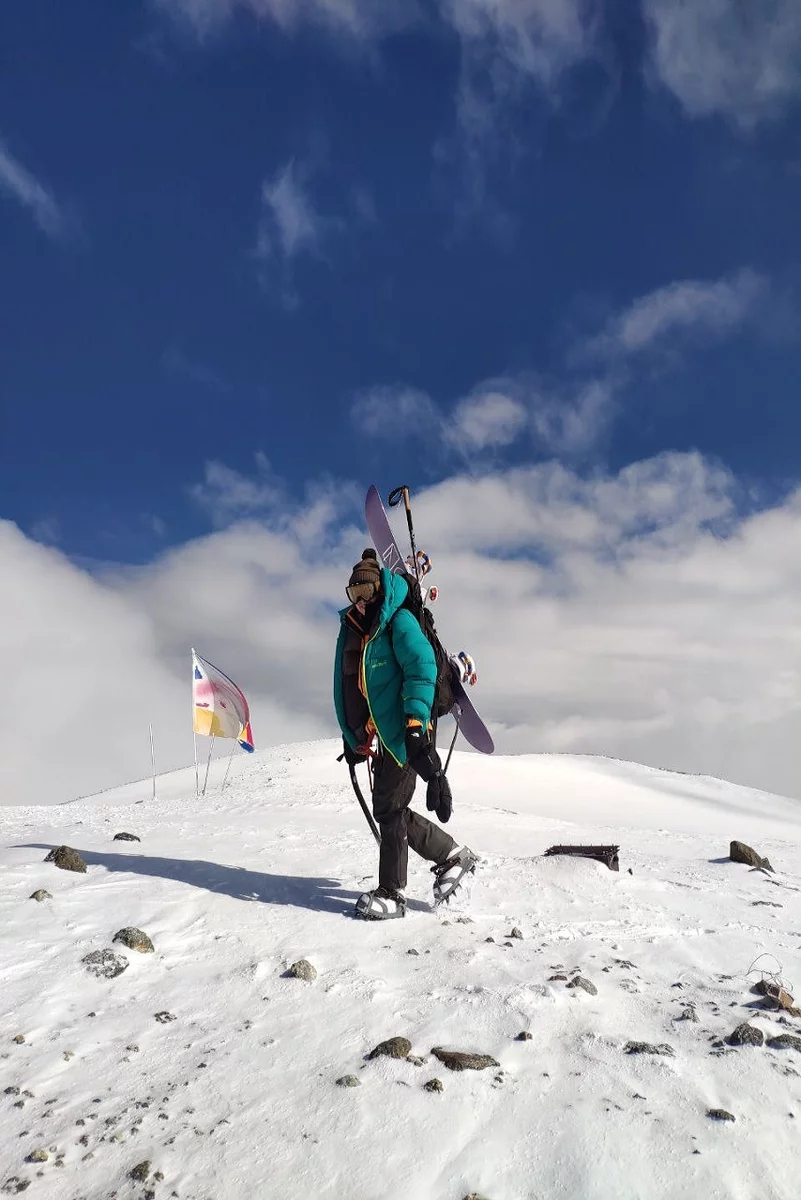
— A year later, I went to the mountains for the first time: I came to Russia and climbed Mount Elbrus. The mountains turned my life upside down: there I realized that if I wanted something, I could do it—the main thing is to keep moving forward in small steps.
For another year I worked for my former company as an employee, and at the same time, as a hobby, I began to organize mountain climbs and promote mountains and travel in general.
In 2018, I went completely into my own business, which is directly related to travel. Over the past 7 years, I have lived and traveled in 45+ different countries on 4 continents, somewhere for 2–3 weeks, somewhere for half a year. Nepal, Bali, and India are the places I’ve returned to most during that time.
— This way of life has a lot of advantages: you constantly absorb another culture; you communicate with a huge number of people around the world, who then become your friends; this rhythm gives you ease; when new acquaintances call you to another continent and you are already there, everything is decided much faster and more fun. This way of life is super free: you’re constantly living in the flow, when you don’t have to coordinate with anyone where you’ll be and when.
Of course, there are drawbacks to this way of life as well, but when you’re living it, you simply don’t notice them. Looking back, the primary drawbacks of this rhythm are the constant gathering and transportation of things (at least, I’ve already developed an allergy to it), plus, in my case, these things are very much and they are heavy (a lot of gear, among other things).
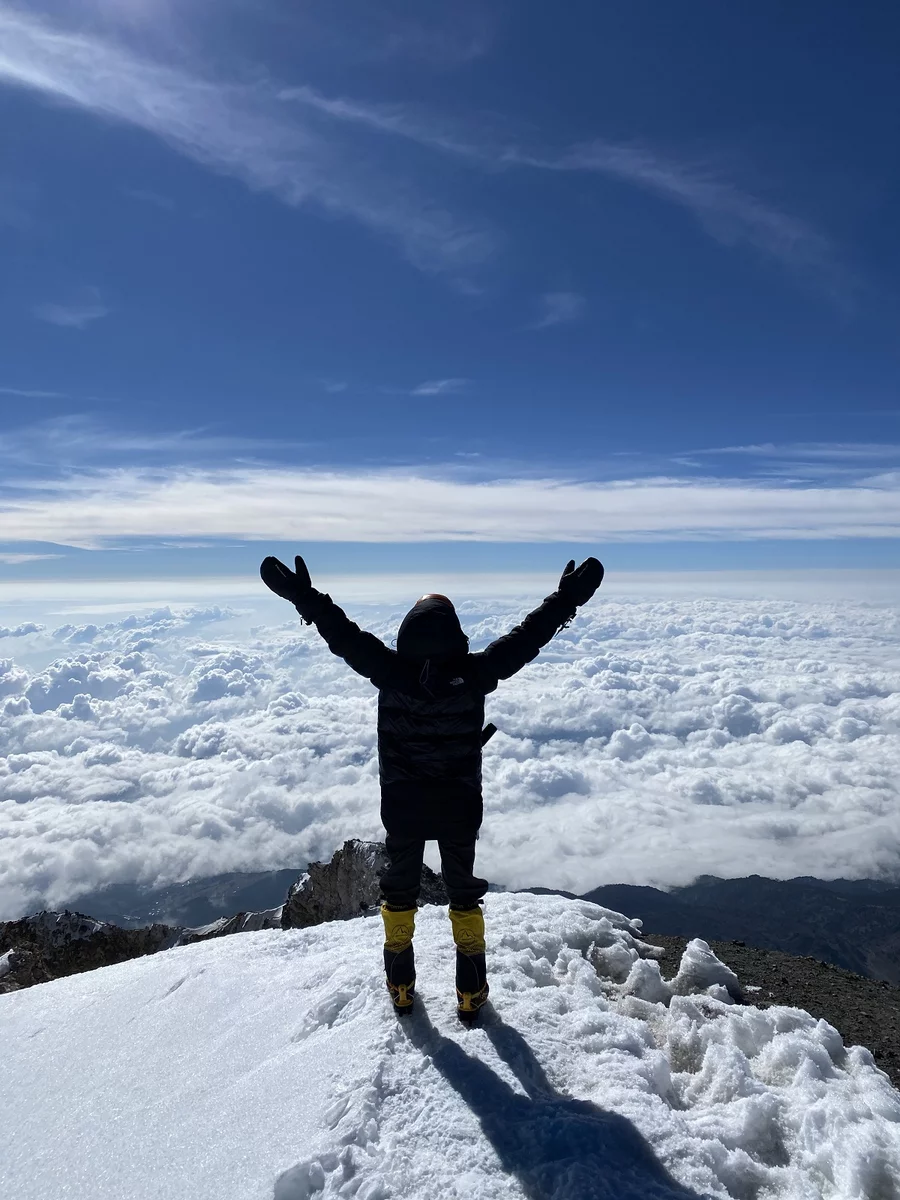
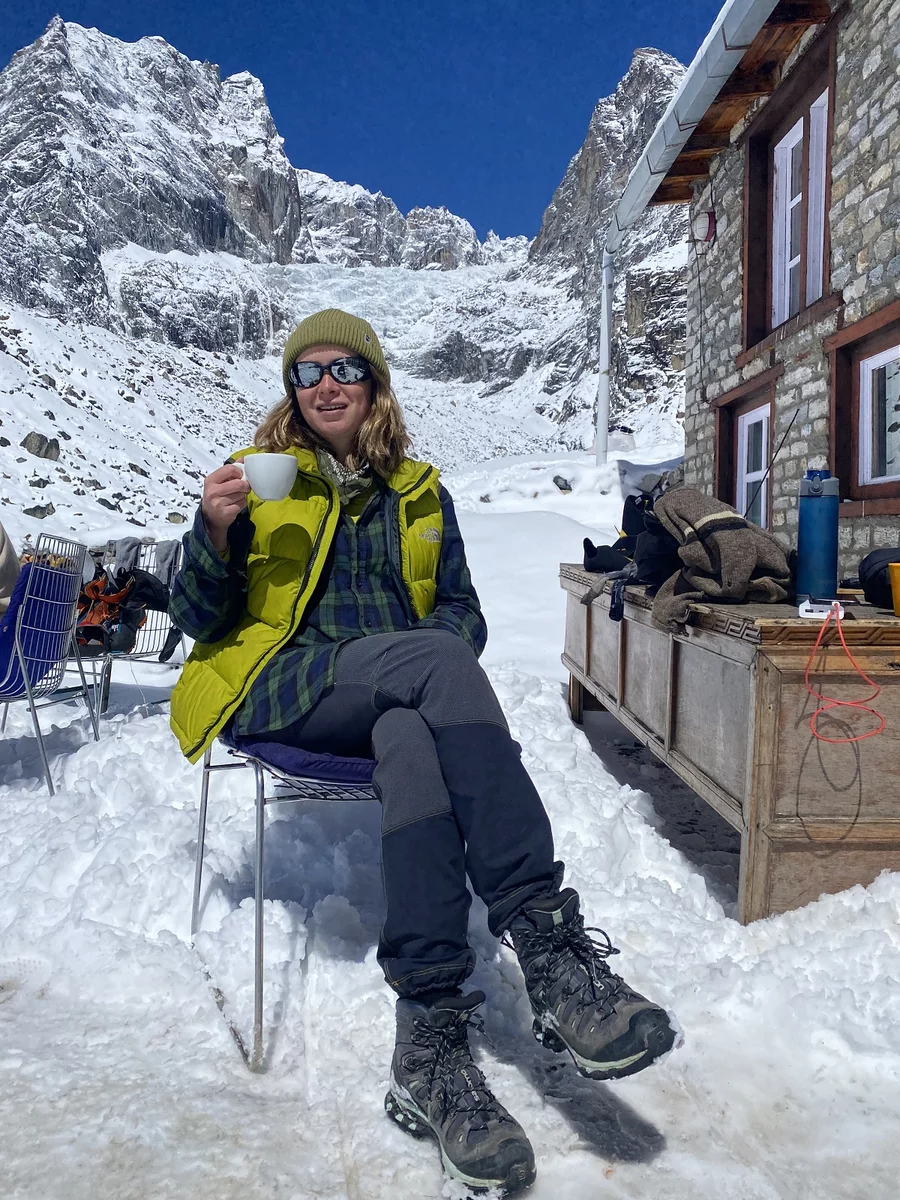
— Regarding the financial costs, it should be emphasized that you can travel in different ways. It is possible to do it on a budget by living in hostels and using public transport; when the level of earnings increases, so do the demands in all plans.
For example, in 2016, when I came to Singapore or Hong Kong, I lived in hostels because I could not afford to rent a separate room. Now, of course, the situation is different, and I can already afford a room in a good hotel. In terms of numbers, I can say that in 2016, I started with $1,000 per month, and now the average income can vary between $3-5 thousand.
It should be noted that lifestyles can change, which is what is happening to me now: after 7 years of incessant traveling and moving around, I decided that I wanted to have my own home in a particular place and to travel from that place. I chose Bali for this purpose because it is simply the best place to live out of all the places I have been.
“For those who have long been 'sick' of the nomadic lifestyle, I advise starting by finding like-minded people”
Pirate shares his nomadic experience:
— I became a digital nomad a long time ago; my profession in the field of "travel," it might be said, obliges me.
I travel a lot around the world and have to work in different places: I have long developed the habit of opening my laptop and closing tasks, regardless of the environment, weather, and time of day.
I used to spend 3–4 months a year in Russia, and I completely moved abroad in spring 2022. Now I am in Spain, in Mallorca.

— The lifestyle of a digital nomad differs from the usual one, perhaps, in an increased level of awareness and responsibility—everything is only in your hands. But this way of life gives a sense of real freedom: there is no attachment to anything, and you truly become the master of your life.
Of the difficulties, I can mention the constant search for infrastructure: electricity, the Internet, a place to work and sleep. And finding a community of like-minded people, of course.
Out of these needs was born our international community of "SOUL people"—a tribe of people who live on a journey. We travel together and develop. We choose our own lodgings, contribute to the rent, and live in a «co-living» format, setting up our own household and working and leisure areas. This format requires less financial investment and expense: we buy food together, rent a car together if necessary, and pool our money on major purchases, for example, household appliances.
Therefore, for those who have also long been "sick" of the nomadic lifestyle and have any possibility of making money online, I would firstly recommend thinking about the question of your environment. In my opinion, this question is the main one in the transition to a digital nomadic lifestyle. With a good community, all other difficulties will be within your grasp.
“Any difficulties now are temporary”
Milana Prikhodko shares her experience of becoming a digital nomad and of living in such a rhythm:
— In my second year at university, back in 2016, a friend of mine said a phrase that struck me: "I see the highway in the morning out the window, and someone else sees the ocean. And I suddenly realized that I wanted to be among the latter. The idea was already feasible: I had a stable remote job and good English.
In February 2022, the decision began to come to fruition in the shortest possible time. My twin and I picked up some extra work, hooked up some mining, and made a couple of successful investments. By July 2022, we had enough money to rent an apartment in Thailand, buy two tickets there, move things into a storage container, and move out.
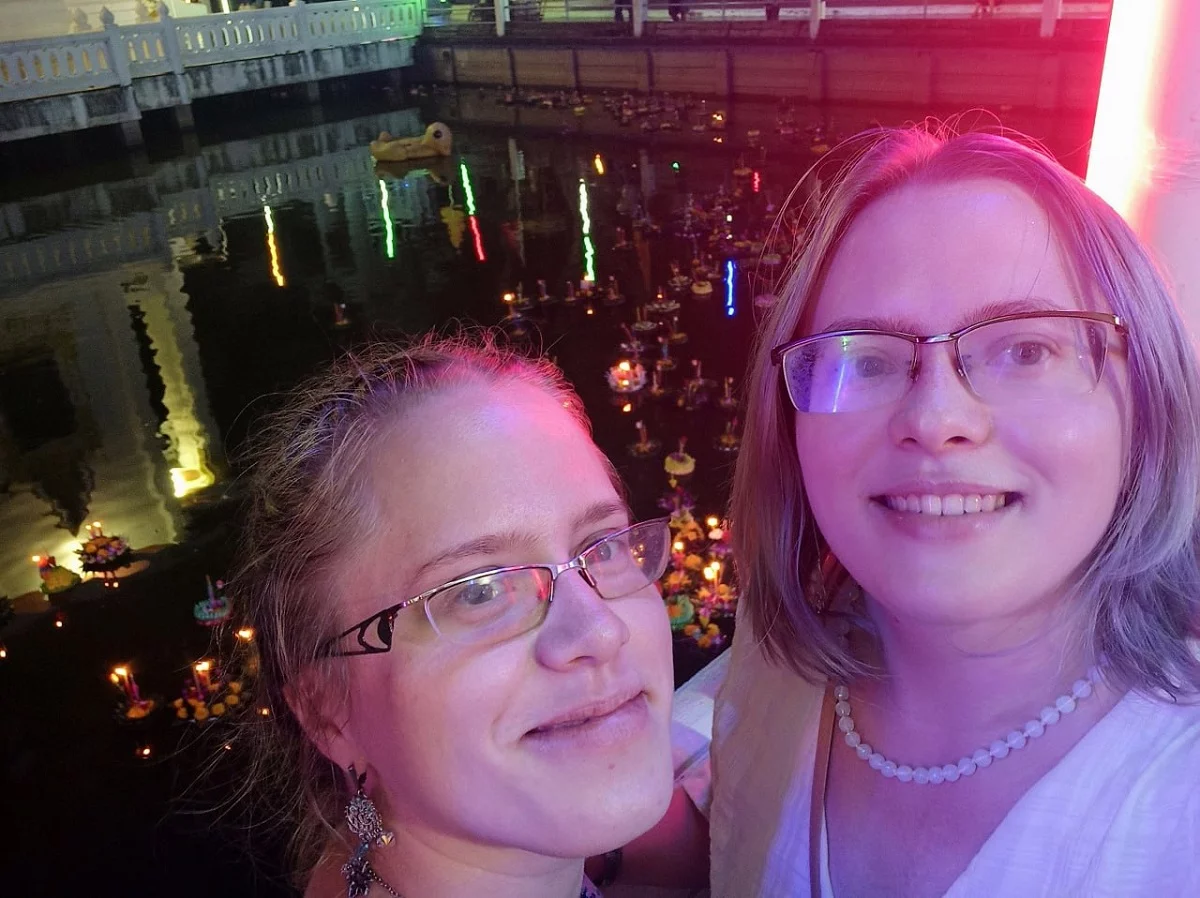
— Our first nomadic trip was to Thailand. It was the first Asian country we vacationed in, and for a long time we remembered it as paradise. We opened an account in a Thai bank fairly quickly because we had prepared in advance.
The process of obtaining a tourist visa in Moscow was probably the most challenging because the bureaucracy was terrible, we were anxious, and there were numerous unforeseen expenses and stresses, starting with the urgent need to find a notary translator and ending with choosing where to put the commas in the visa center. We were also always short of luggage weight; it’s not easy to fit your whole life into 23 kg. Otherwise, everything was very easy for us, and we never regretted it.
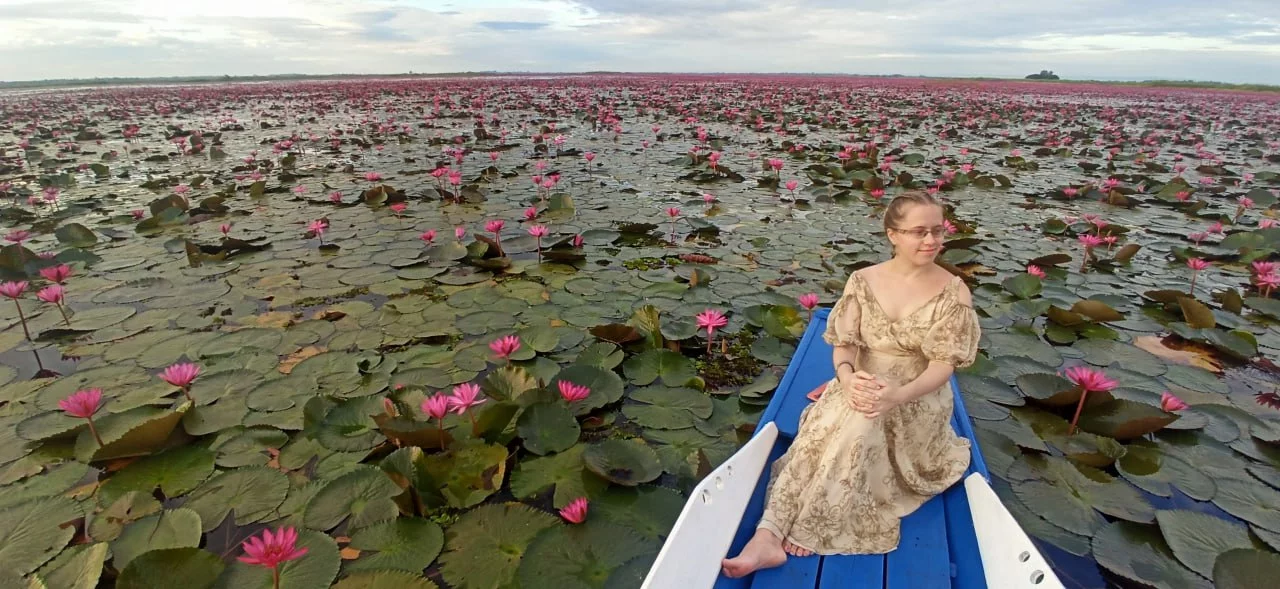
— I am a freelancer and don’t work that much. My workflow has not changed at all—many clients are not even aware that I have left since I still communicate with them by mail. There is even more inspiration and energy for work now.
Of course, for me, this is my dream life. It is freedom, constantly new impressions and emotions, nature, new people, beaches, the sea, and exotic fruits. Now I have no winter clothes—from winter clothes, I have one miniature sweater just for peace of mind.
The undoubted advantage of such a nomadic life is that any difficulties are temporary: anyway, from any country I will leave in a couple of months. So, basically, I only notice the good things about each country. Finally, a digital nomad sounds proud, and my Instagram now looks like a blogger’s and can be bragged about. It’s also because of my lifestyle that I started a telegram channel: for me, it’s an outlet and a way to structure new information, helping other nomads.
The disadvantages for me are all the same constant moves: at least the first 2 weeks are spent adapting. It’s exhausting—searching for food, water, local SIM cards, and the best way to pay, as well as not understanding the local people and the rules.
Also, you have to be very careful with the timing: how many days in the country, when to extend the visa, buying return tickets to a third country, etc. Of course, the problems with bank cards are also stressful. For example, in Asia, there is virtually no support and poor technical equipment: cards can just stop working, and support offers only to fly to Bangkok to solve the problem.
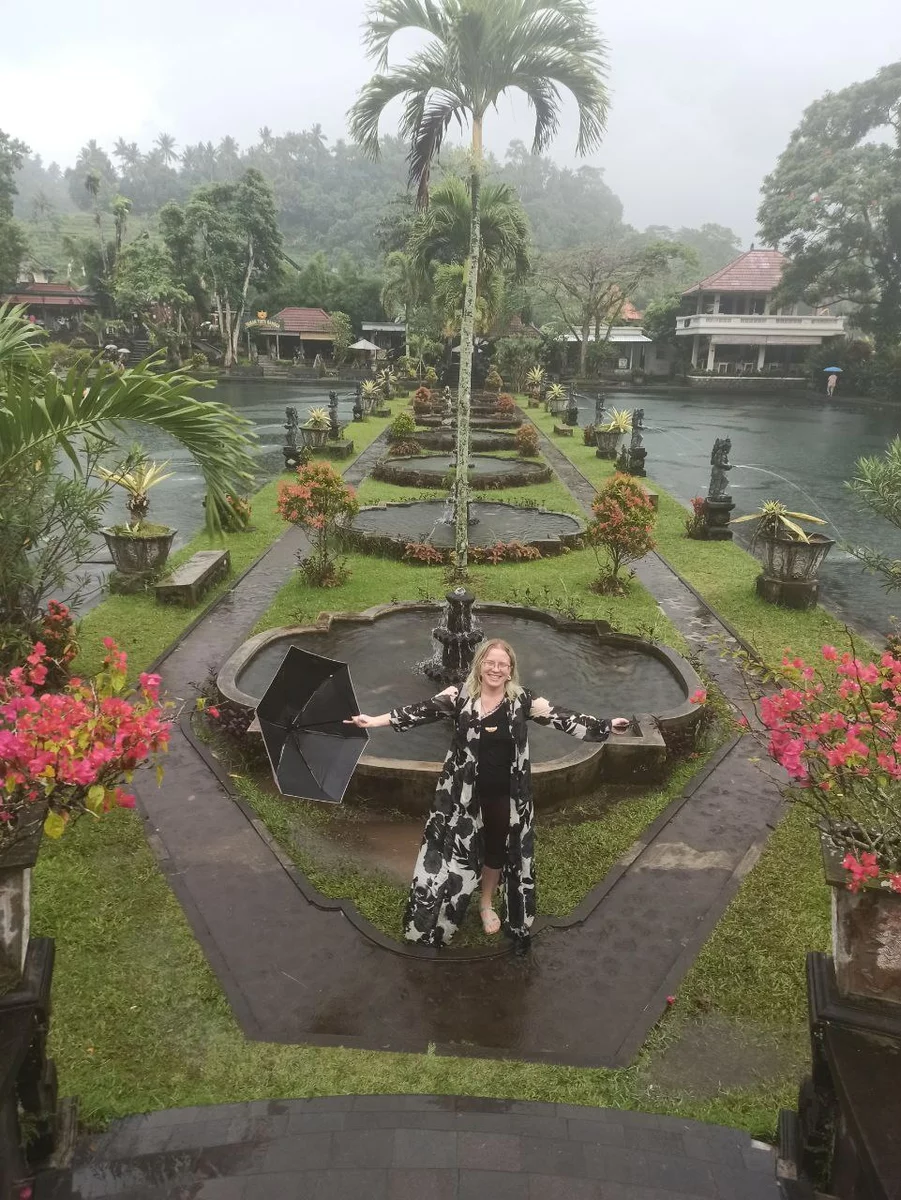
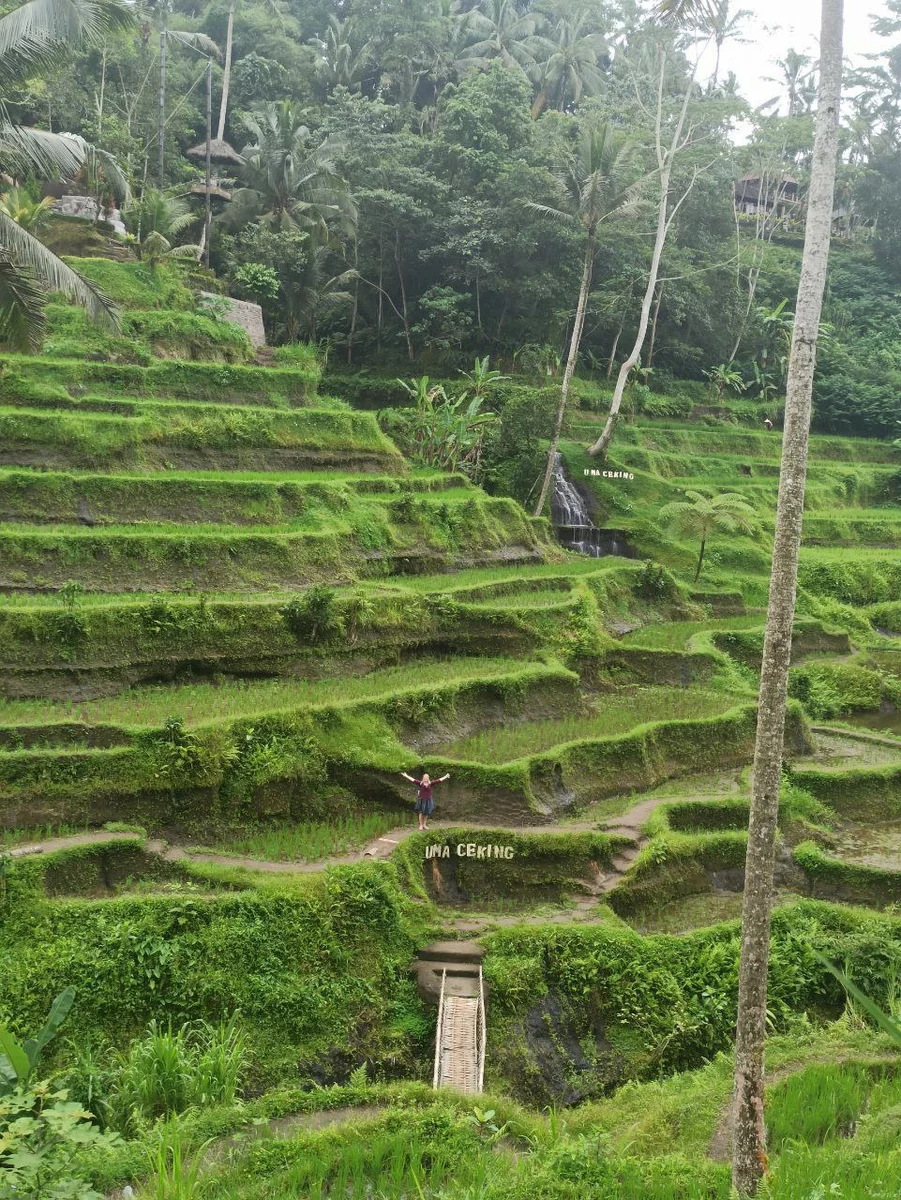
— As nomads, we are still learning and have only visited three countries. Then we’ll go to Kuala Lumpur, and then we’ll go back to Thailand for rest. No further plans yet—we agreed to plan only as needed, two countries in advance. Who knows what will happen in six months.
We mostly travel on visa-free stamps; in most countries they can be extended, which generally gives a pretty decent amount of time. But if we have to get a visa, we simply apply for it at the local embassy of the desired country—it is often even faster and cheaper than in Moscow. In Asia, the formalities are much easier, and people are willing to help foreigners—it rarely takes more than 2 hours for visa issues. Recently, it took us 30 minutes to renew a visa-free stamp in the Philippines.
The only thing you have to plan is the dates of your stay in the countries, as well as excursions and trips within the country if you want to move there. Google is a help, but sometimes you have to figure something out right on the spot. But this rarely happens: we just think through everything beforehand: when we go, where we go, and how to get to each step of the way. We read forums and reviews and look at Google Maps.
In 99% of cases, we decide to move when the maximum length of stay on a visa expires. Of course, we plan it in advance—at the entrance to the country, we already have return tickets. In Bali, for example, you can spend 59 days on an extended visa stamp—and we did so. The exception is the Philippines: you can stay here for at least three years, but we could not find an attractive location, and the prices for accommodations left us not particularly happy. So we will stay as long as the apartments we like are available, and then we will leave.
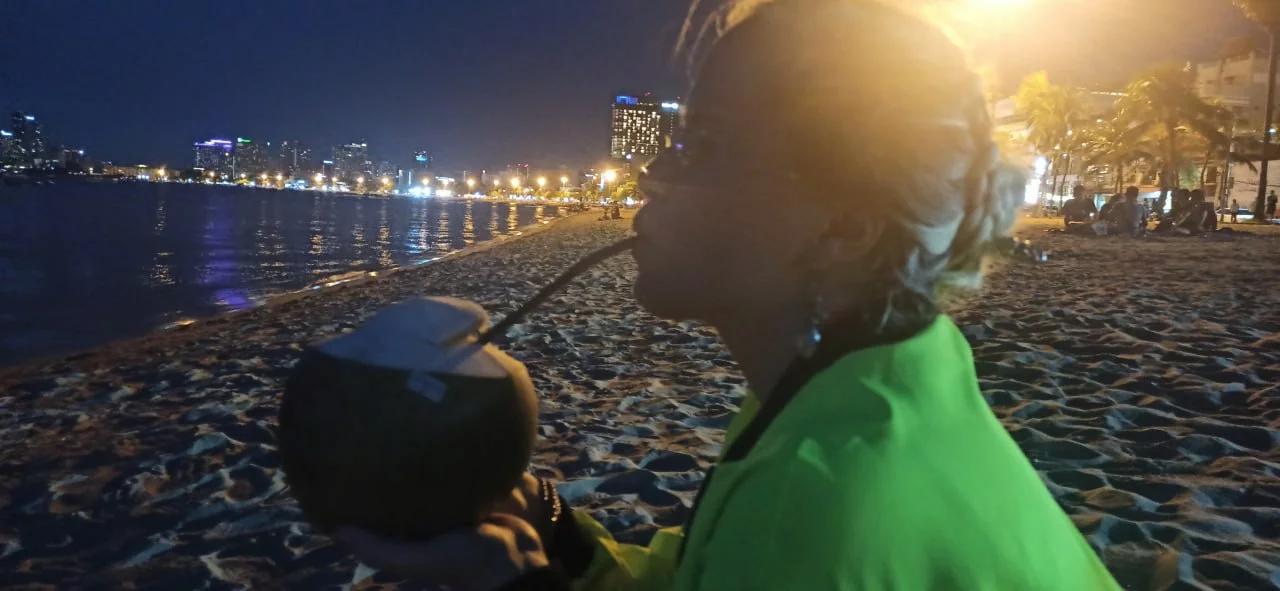
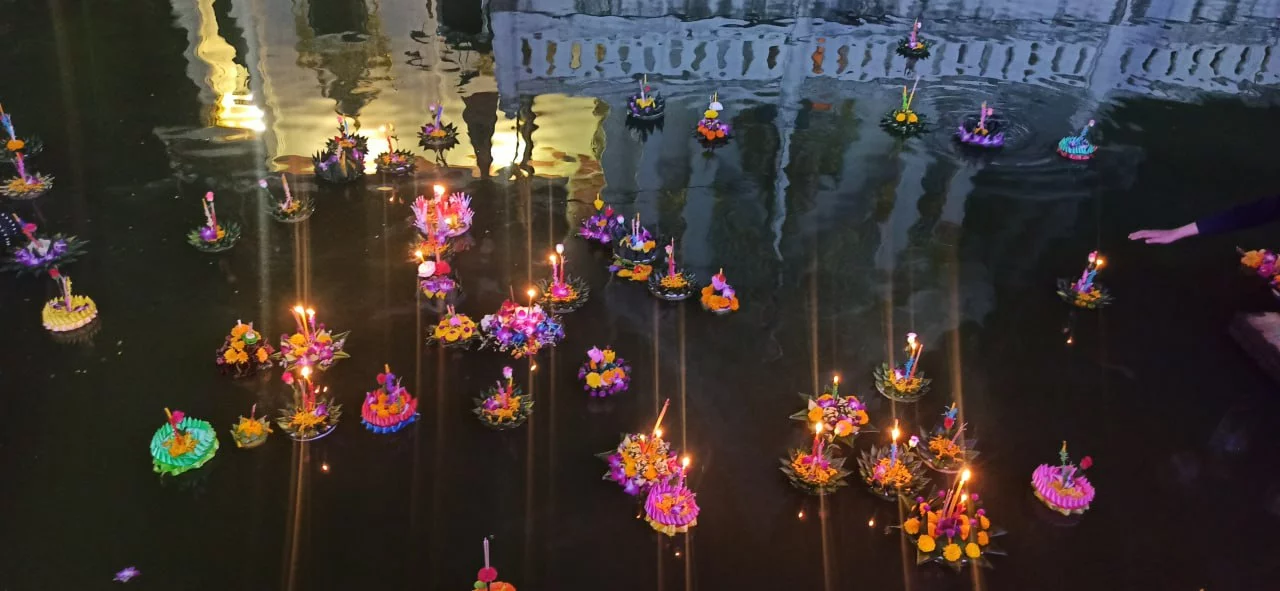
— We specifically considered how our costs varied. In Thailand, they were even lower than in Moscow, but it’s basically the same, give or take.
Added costs for tickets (about $130 per person every 2-3 months), container rent ($80 per month for two people), visas (on average $50 per month per person), and health insurance ($40 per month per person). The cost of living in general has decreased: in Thailand, we rented a condominium for two times less than in Moscow, and food and services are much cheaper here. This difference makes up for the increased expenses.
We have managed to change apartments more than seven times in six months. The best option for us is airbnb. There, you can rent a place for a few months, and the payment will be monthly (and usually with a decent discount for long-term rentals). There are no deposits and often no utilities, and standard apartments often have a refrigerator and a kitchen. I am convinced that the main criterion is a good neighborhood and view from the window. Then any disadvantages of housing are smoothed out.
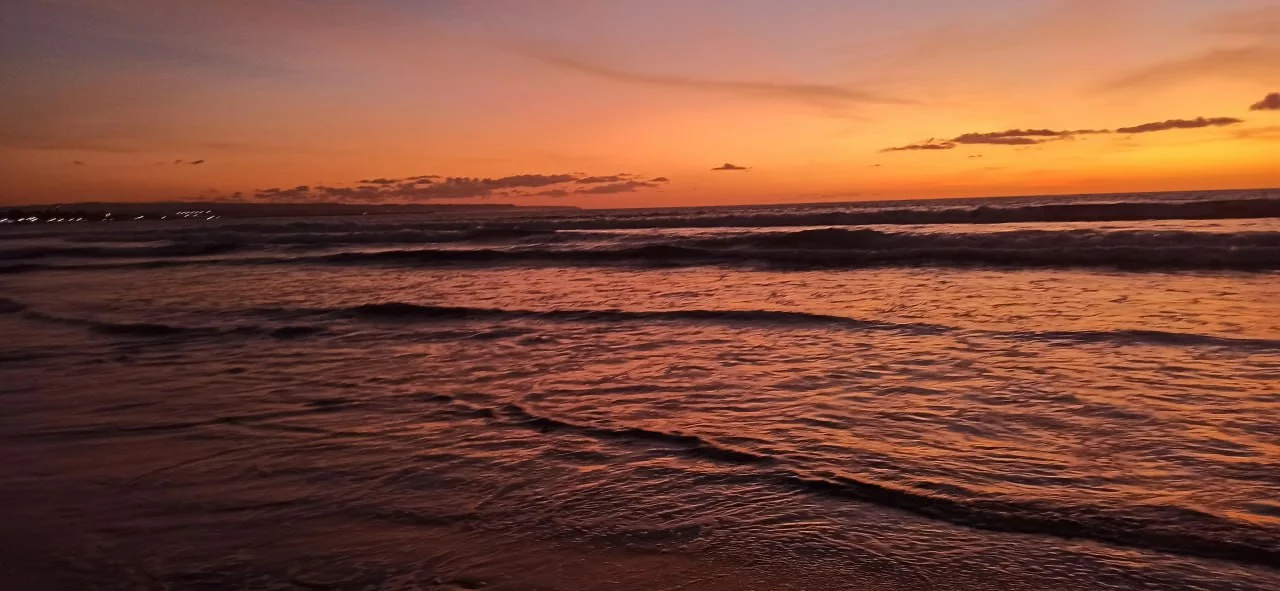
— Of the interesting stories, I remember most of all the Balinese cockfights. There is a famous article by Clifford Geertz about them, and I always read it as a study of some distant cultural phenomenon. But in Bali, it dawned on me that Balinese cockfighting should take place here. And since the article was written in the late twentieth century, the fights had time to be banned, and they went underground. To be more exact, it’s not the fights themselves that are banned, only the betting on them. But that’s all the locals go there for.
I wrote to guides and asked at tourist bureaus, but everyone said it was illegal and there were no fights. On my birthday, I complained to a cab driver that I wanted to see them, to which he suddenly said he could take us the day after tomorrow—and it would not be at all expensive. Of course, I was a little nervous—you never know where they would take us—but the desire to see the fights in person won out.
It was amazing! We drove for an hour, and eventually we were brought to a fairly large arena. The cab driver went with us as an attendant and a pass. There were over a hundred men at the fights, and when the betting was done, the noise was unimaginable. Everyone was shouting "Sala Sala"—that’s what they meant by the amount of the bet—and shaking their hands. The stewards looked like real mafiosi, and the fights themselves were swift and unpredictable. The cockfights are surrounded by an intricate ceremonialism that the locals themselves don’t notice at all.
It was a dream—as it seemed to me, a pipe dream—to see it in person. But here I am, having been to a cockfight, living like a nomad, and following my heart.
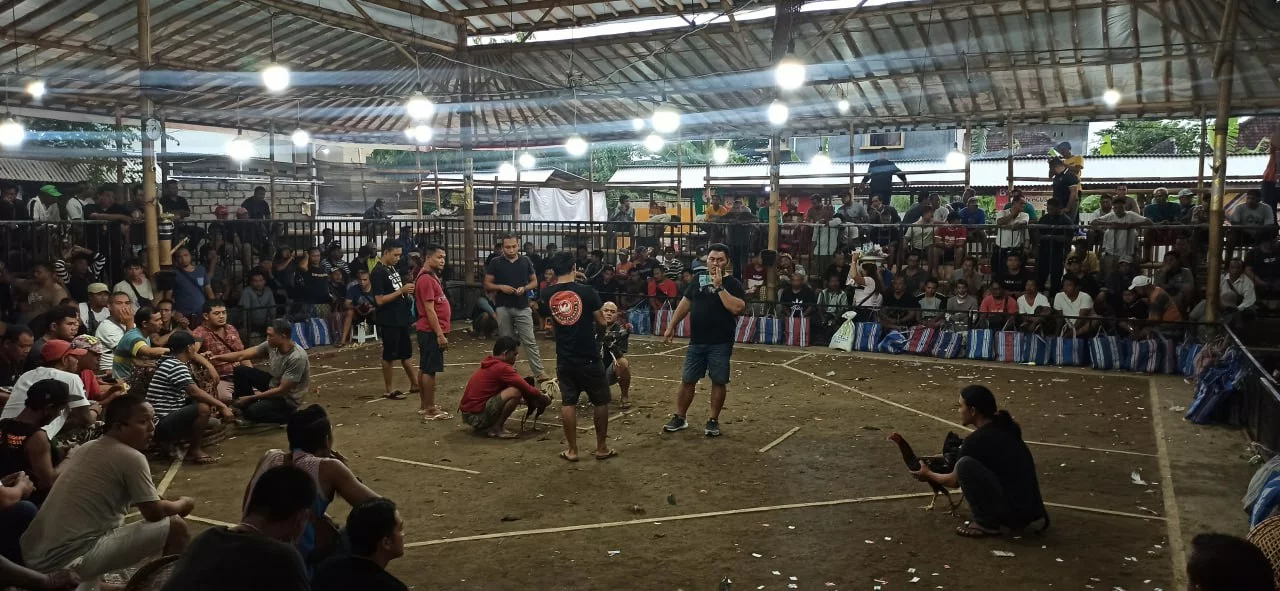
Author
I am responsible for editorial work. I write expert interviews and guides.

















